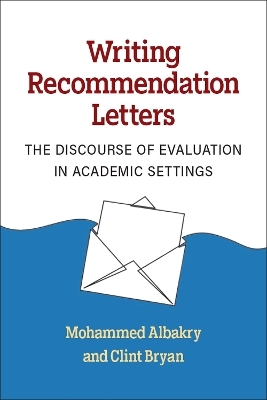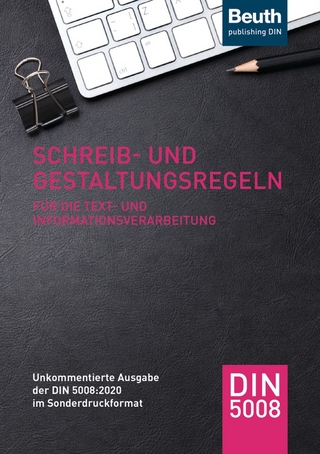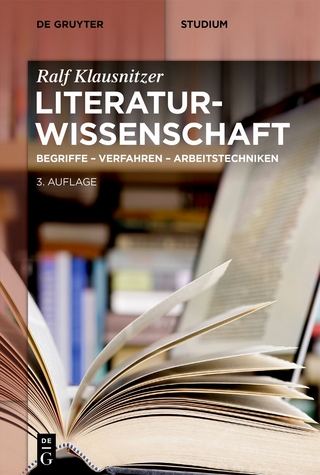
Writing Recommendation Letters
The Discourse of Evaluation in Academic Settings
Seiten
2024
The University of Michigan Press (Verlag)
978-0-472-03965-4 (ISBN)
The University of Michigan Press (Verlag)
978-0-472-03965-4 (ISBN)
The first book-length guide to academic recommendation letters, supported by real-world examples
Even though reading and writing recommendation letters is one of the essential service tasks of the professorial life of academics, there are few resources to train graduate students and junior academics on how to draft a successful recommendation letter for different academic purposes. Writing Recommendation Letters draws linguistic and rhetorical principles from close to a thousand real-world examples of academic letters of recommendation. As a result, the research that informs the pedagogy is extensive, current, and highly relevant to the discourse of evaluation in academic settings with findings that have implications for genre-based writing instruction, English for Academic Purposes (EAP), and teaching of academic literacies. The authors are two experienced college professors who regularly teach graduate students and mentor young academics, so the reflection questions and instructor suggestions they provide were designed for today’s university classroom. The result is an instructive book that translates academic discourse structures and principles into accessible language, supplying authentic examples and ample writing practice.
Key Features
Readers will learn the theoretical context that defines the genre of letters of recommendation.
The book highlights the similarities and differences between the three different types of letters of recommendation: letters written for graduate admission, letters written in support of fellowship applications, and letters written to support obtaining a faculty position.
Chapters on different aspects of linguistic and rhetorical features discuss presenting the applicants' credentials, highlighting the strengths of their character, accentuating and downplaying certain traits, as well as the pros and cons of boilerplate language and the use of customary frames for opening and closing.
Readers will see real-world examples of actual letters of recommendation to see how seasoned faculty build the case for the applicant.
Even though reading and writing recommendation letters is one of the essential service tasks of the professorial life of academics, there are few resources to train graduate students and junior academics on how to draft a successful recommendation letter for different academic purposes. Writing Recommendation Letters draws linguistic and rhetorical principles from close to a thousand real-world examples of academic letters of recommendation. As a result, the research that informs the pedagogy is extensive, current, and highly relevant to the discourse of evaluation in academic settings with findings that have implications for genre-based writing instruction, English for Academic Purposes (EAP), and teaching of academic literacies. The authors are two experienced college professors who regularly teach graduate students and mentor young academics, so the reflection questions and instructor suggestions they provide were designed for today’s university classroom. The result is an instructive book that translates academic discourse structures and principles into accessible language, supplying authentic examples and ample writing practice.
Key Features
Readers will learn the theoretical context that defines the genre of letters of recommendation.
The book highlights the similarities and differences between the three different types of letters of recommendation: letters written for graduate admission, letters written in support of fellowship applications, and letters written to support obtaining a faculty position.
Chapters on different aspects of linguistic and rhetorical features discuss presenting the applicants' credentials, highlighting the strengths of their character, accentuating and downplaying certain traits, as well as the pros and cons of boilerplate language and the use of customary frames for opening and closing.
Readers will see real-world examples of actual letters of recommendation to see how seasoned faculty build the case for the applicant.
Mohammed Albakry is Professor of English and Applied Linguistics at Middle Tennessee State University. Clint Bryan is Associate Professor of English and Dean of College of Arts and Sciences at Northwest University.
TABLE OF CONTENTS
List of Figures & Tables
Acknowledgments
Introduction
Chapter 1 Occluded (Support) Genres
Chapter 2 The Importance and Varied Purposes of LOR’s
Chapter 3 Meeting the People Behind the LOR
Chapter 4 Credentials of the LOR’s Subject
Chapter 5 The Applicant’s Character
Chapter 6 Softening and Strengthening Modifiers
Chapter 7 Phrase Frames and Customary Closings
Glossary
References
| Erscheinungsdatum | 06.02.2024 |
|---|---|
| Reihe/Serie | Michigan Series in English for Academic & Professional Purposes |
| Zusatzinfo | 1 |
| Verlagsort | Ann Arbor |
| Sprache | englisch |
| Maße | 152 x 229 mm |
| Themenwelt | Geisteswissenschaften ► Sprach- / Literaturwissenschaft ► Literaturwissenschaft |
| Sozialwissenschaften ► Pädagogik ► Berufspädagogik | |
| Sozialwissenschaften ► Pädagogik ► Erwachsenenbildung | |
| ISBN-10 | 0-472-03965-2 / 0472039652 |
| ISBN-13 | 978-0-472-03965-4 / 9780472039654 |
| Zustand | Neuware |
| Informationen gemäß Produktsicherheitsverordnung (GPSR) | |
| Haben Sie eine Frage zum Produkt? |
Mehr entdecken
aus dem Bereich
aus dem Bereich
Buch | Softcover (2020)
Beuth (Verlag)
19,90 €
Begriffe - Verfahren - Arbeitstechniken
Buch | Softcover (2024)
De Gruyter (Verlag)
24,95 €


